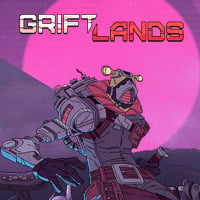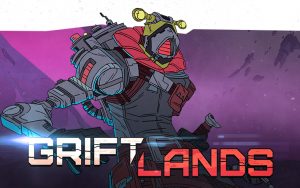

Nowhere near the options you’d find in Monster Train or Slay the Spire. While Griftlands offers a fair number of ways of building your decks, these still aren’t as expansive as in other games of the genre. These are typically pretty short, less than a single day of the main mode, and are fun if you want a competitive bite-sized game of Griftlands. In addition to individual characters’ campaigns, there are also daily challenge runs, where you can compete against other players. Manipulation makes your deck more effective and provides additional options for defense or character abilities. Diplomacy and intimidation are often mutually exclusive, so you’ll want to specialize in either one or another. The negotiation deck is divided into diplomacy, manipulation and intimidation. Destroying these can result in benefits, for example by giving you money to pay your party members. Your allies also show up as these, and both your and your foe’s effects can be attacked, just like any other characters. There is, however, a new mechanic, with characters able to summon powerful effects that act almost like their companions during the encounter.

These are always one-on-one and the goal is still to reduce your enemies’ health – called resolve during this phase. In contrast with combat, negotiations are unlike anything you’d see in most other deckbuilders. The former will impact your reputation and especially your ability to negotiate.

The latter might make them your allies, depending on the character and the situation. If all enemies are panicking, the game gives you a choice to either kill them all, or to spare them. If they get below this level, they’ll be stunned for a few turns. They allow you to deal damage, increase your defense, or activate some character mechanic. To use a card, you must spend a specific number of action points. GameplayĬombat in Griftlands should be very familiar, if you’ve ever played a deck-building roguelite before. Those that you can’t, like boss encounters, you can still make less difficult by parleying. Most fights you can completely avoid by negotiating. Sometimes there’s also an opportunity to affect its outcome beforehand. There’s often more than one way to resolve an encounter. The narrative is divided into days: Each features a few encounters, choice-based events, and story advancements, which end in a big boss fight. Smith is a wastrel son from a noble family, back to reclaim his rightful place after the death of his parents. Rook is a spy, playing both sides in a brewing conflict between workers and owners, while pursuing his own goals. There are three main characters to choose from: Sal Ik-Derrick is a bounty hunter, who’s returned to her hometown to get revenge on an old friend who sold her out. Griftlands is a traditional turn-based deck-building roguelite, with RPG vibes, and Slay the Spire style mechanics at its core.
#Griftlands indie games Pc#
Death Roads: Tournament | Single Player Pc Roguelite | Gameplay First Look


 0 kommentar(er)
0 kommentar(er)
